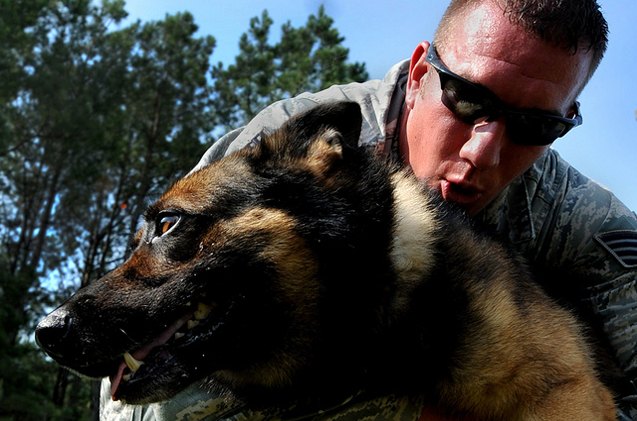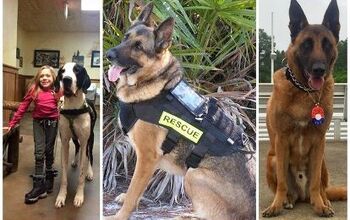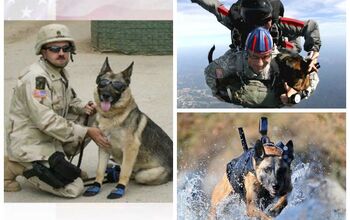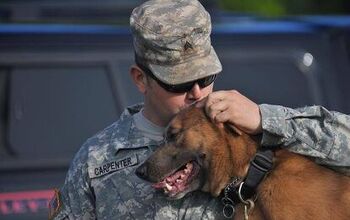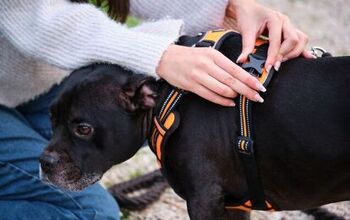New Bill Introduced To Bring Retired Military Dogs Home After Overseas

It seems the military motto of No Man Left Behind is finally living up to its lofty ideal as legislation has just been introduced to ensure that military working dogs are brought home to the U.S. after they are no longer needed in combat roles overseas. To be honest, it never occurred to me that they weren’t brought home!
Related: HABRI Grants $42,000 To Study Effects Of Service Dogs On War Veterans With PTSD
Driven by Oregon Senator Ron Wyden, the new Military Working Dog Retirement Act of 2015 means the Department of Defense has to bring home trained military dogs in cases of injury and/or decommissioning. The current practice is to simply leave them behind for adoption in the country where their service ends. Worse, if their war-time buddies including handlers and veterans wanted to bring them home they had to come up with the funds to cover the associated costs.
“The bond between these military working dogs and their handlers is unique,” says Wyden. “By bringing these dogs that have served alongside our men and women in uniform back to the United States, this bill can provide assistance to veterans while supporting the close bond between these dogs and our soldiers returning home.”
Related: Dogs Help People Who Have Seen Too Much [Video]
Acknowledging the special bond that is created between the men, women and dogs that serve their country, the forward-thinking Senator feels that reuniting them back on U.S. soil will go a long way in supporting and assisting returning veterans, many of whom suffer from Post-Traumatic Stress Disorder (PTSD).
But spending time in combat, sniffing for roadside bombs and explosive devices can take its toll on a military dog and the estimated 2,000 pooches currently out there will require special care on retirement. In my mind, who better to care for a four-legged veteran than his handler?
Paws Assisting Veterans Service Dogs (PAVE) supports the bill stating it’s high time dogs that have put their lives on the line during military service are acknowledged and honored for their work. The organization trains service dogs for veterans who return to the United States with mental or physical disabilities and appreciate the comfort that comes from a dog – especially one that has walked the walk.

Sharing space with three seriously judgy Schnoodles and a feline who prefers to be left alone. #LivingMyBestLife
More by Mary Simpson



